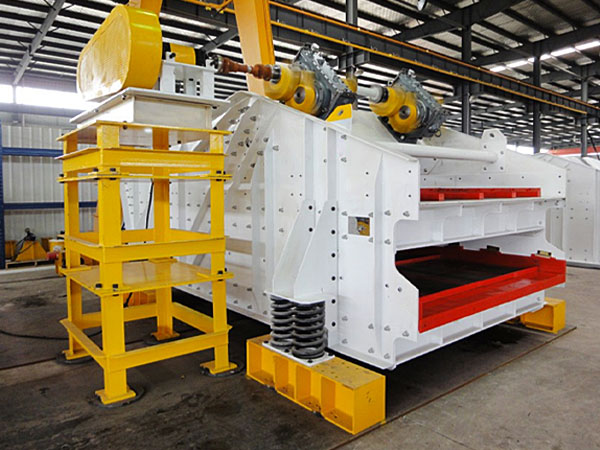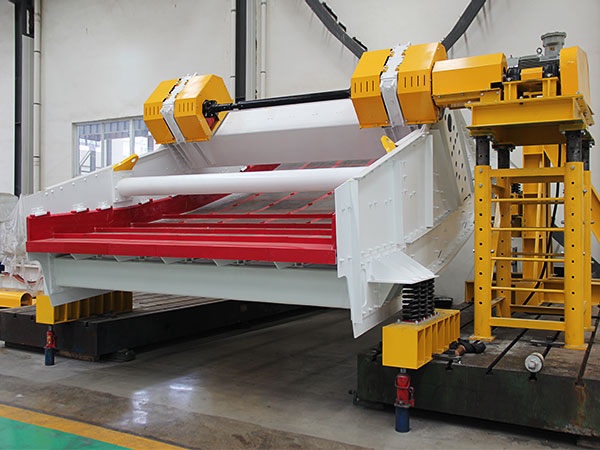What are the application fields of linear vibrating screen
A linear vibrating screen is a screening machine that utilizes a linear motion to convey and classify different types of bulk materials. The linear motion is generated by two vibrating motors with adjustable eccentric weights that rotate in opposite directions. The motion of the vibrating motors is then transmitted to the screen surface, causing the material on the screen surface to move forward in a straight line.
Linear vibrating screens are designed to screen and grade various materials, including granular and powdery materials, as well as liquids and slurries. They are widely used in industries such as mining, metallurgy, chemical, food, and construction materials.

Linear vibrating screens are used in a wide range of application fields due to their ability to screen and grade various materials. Some of the common application fields of linear vibrating screens include:
Mining and mineral processing: Linear vibrating screens are widely used in mining and mineral processing industries for the screening and grading of various ores and minerals.
Chemical industry: Linear vibrating screens are used in the chemical industry for the screening of various chemicals, such as fertilizers, plastics, and resins.
Food and beverage industry: Linear vibrating screens are used in the food and beverage industry for the screening of food products, such as flour, sugar, and spices.

Pharmaceuticals industry: Linear vibrating screens are used in the pharmaceuticals industry for the screening of drugs and pharmaceutical products.
Recycling industry: Linear vibrating screens are used in the recycling industry for the sorting and separation of various materials, such as plastics, metals, and glass.
Construction materials industry: Linear vibrating screens are used in the construction materials industry for the screening of materials such as sand, gravel, and crushed stone.
Overall, linear vibrating screens are versatile screening machines that can be used in a wide range of application fields for the efficient screening and grading of various materials.

